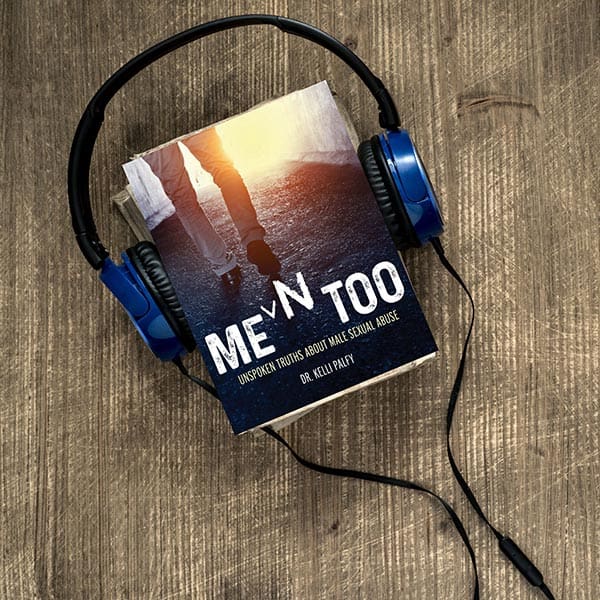Dr. Palfy shares her insights on male abuse, sexual abuse, PTSD and more.
- Male Survivors
- Dr. Kelli Palfy
Identifying Child Sexual Abuse
by Dr. Kelli Palfy Registered Psychologist
The reality is that unless you are a medical doctor examining a child and looking for sexual trauma, or the child discloses, you aren’t likely to know for sure if abuse has occurred. Children who are groomed, threatened, afraid, confused, worried, ashamed, or feeling responsible for being abused are not likely to talk about it. However, they may begin to display symptoms, including a sudden extreme change in their character, or they may express their distress in other ways. It’s important to be aware of common trauma responses.
Common Emotional, Behavioural, Cognitive & Physiological Responses to Trauma
Emotionally, many abused children feel anger toward the people who harmed them and toward those who failed to protect them. They may also feel anger at themselves. “Young children, by virtue of their level of cognitive development, attribute everything that happens to their own actions or their own magical thinking.”[1] They have difficulty seeing other people’s contributions to their circumstances and feel responsible for the abuse and for the subsequent problems they have no control over. Worry about their own mental instability may cause them to decompensate (regress emotionally) and develop negative core beliefs about themselves.[2]
Behaviorally, after experiencing abuse, children can experience dysregulation in many different ways. Some become shy and withdrawn, while others become bullies.[3] Others develop learning difficulties and are subject to social rejection. Many experience negative repercussions because of behavioral problems they express while attempting to avoid distressing memories or while dysregulated. When children have been victimized, their consequent behavior often makes them easy targets for further abuse from their peers, including bullying and rejection.
Sexually abused children may engage in sexual acts with other children or display anger, rage, threatening behavior, extreme fearlessness or acting out.[4] Ricky, for instance, came home and tore apart the drum set he previously loved.
Sexually abused boys can have extremely difficult times during both childhood and adolescence. Although most youth display some out-of-character behavioral changes as they hit developmental milestones, severe manifestations must be recognized as possible signs of abuse. When these changes occur during the course of normal maturation they often are not recognized, or are misattributed by parents.
Cognitively, in a similar way to the experiences of female victims, male victims may come to view themselves as damaged goods, unworthy of being loved.[5] Many develop low self-esteem, a distorted self-image, and a diminished sense of self-worth. Following sexual trauma, a victim’s view of himself and the world around him is never the same. His views must now be reconstructed to include the trauma. His age, previous life experiences, and present supports will profoundly affect the interpretation of, or meaning he places on the traumatic event(s).
Many victims blame themselves for the abuse. They do so in part because assuming a level of responsibility allows them to maintain the illusion that they had a level of control during the abuse and therefore have control of future events. They prefer this to facing the reality that they were completely vulnerable and helpless. This illusion allows them to maintain their internal locus of control—the feeling that they have control over the outcome of events in their world. Many children abused by their parents blame themselves in part to hold on to their parental relations and the idea that their parents are somewhat decent and good people. They have to, for the alternative—that their parents are bad people and they are stuck with them—is too scary.
[1] Bessel van der Kolk, “The Complexity of Adaptation to Trauma Self-Regulation, Stimulus Discrimination, and Characterological Development,” in Traumatic Stress: The Effects of Overwhelming Experiences on Mind, Body and Society, edited by Bessel van der Kolk, Alexander McFarlane, and Lars Weisaeth (New York: Guildford Press, 2007), 197.
[2] van der Kolk, “Complexity of Adaptation.”
[3] van der Kolk, “Complexity of Adaptation.”
[4] Sigrum Sigurdardottir, Sigridur Halldorsdottir, and Sóley S. Bender, “Deep and Almost Unbearable Suffering: Consequences of Childhood Sexual Abuse for Men’s Health and Well-Being,” Scandinavian Journal of Caring Science 26, no. 4 (2012): 688–97, https://doi.org/10.1111/j.1471-6712.2012.00981.x.
[5] Ramona Alaggia, “Disclosing the Trauma of Child Sexual Abuse: A Gender Analysis,” Journal of Loss and Trauma 10, no. 5 (2005): 453–70, https://doi.org/10.1080/15325020500193895; Howard Fradkin, Joining Forces: Empowering Male Survivors to Thrive (New York: Hay House, 2012).
I medically retired from the RCMP with just over 13 years of field experience in 2009 (Reg #45004, HQ 1112) and began the journey of pursuing my doctorate degree. I am now a registered psychologist, running a private practice in Edmonton, AB. I have a strong interest in working with trauma related issues, specifically adult male survivors of sexual abuse.
I have a considerable amount of life experience and exposure, both personal and professional, which I drew upon to write my first book, Men Too: Unspoken Truths About Male Sexual Abuse (an educational, heart-wrenching look at 13 male sexual abuse victims experiences).



